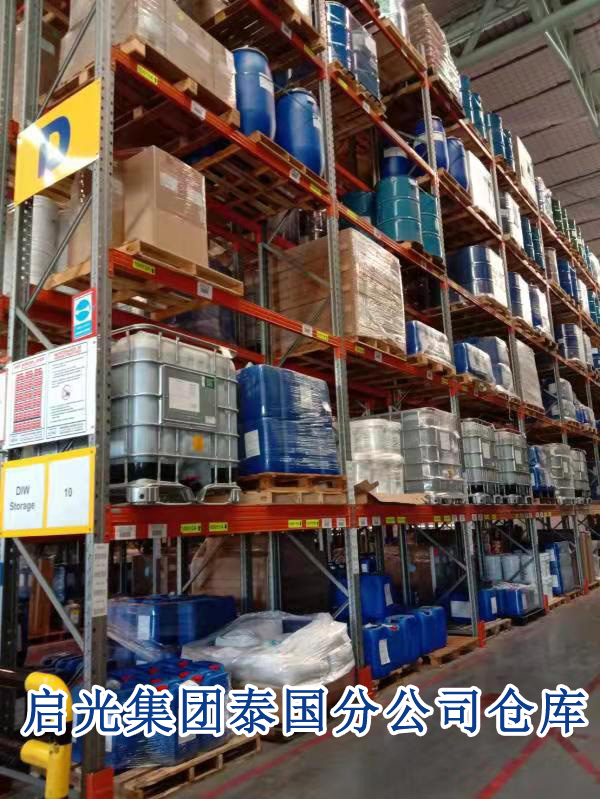In 1967, Litvinenko et al. found that the benzoylation reaction of m-chloroaniline catalyzed by 4-dimethylaminopyridine (DMAP) increased the reaction rate about 104-105 times than that of pyridine as catalyst, and then reported the high efficiency catalyst of DMAP for acylation reaction. Therefore, 4-dimethylaminopyridine has attracted more and more people’s attention as a new kind of efficient acylation catalyst. In addition, DMAP has a significant catalytic effect on etherification, esterification, alkylation and hydroxyl protection of alcohols. It has a broad application prospect in the fields of analytical chemistry, organic synthesis, pharmaceutical synthesis, pesticide, dyestuff, fragrance chemistry, polymer chemistry, etc.

DMAP has been named as “super catalyst” because it has many advantages as a catalyst, such as fast reaction speed, mild reaction conditions, high reaction yield, wide range of solvent selection, and low catalyst consumption [1].
DMAP as a catalyst can be applied to the following types of reactions:
01

Acylation reactions
DMAP can not only catalyze the acylation reactions of simple reactants, but also significantly improve the reaction rate and yield of acylation reactions of some high potential resistance and low activity alcohols and phenols, DMAP as a catalyst can make the yield of many acylation reactions reach more than 90%, and the reaction conditions are mild and can be realized at room temperature.
02

Esterification reactions
The esterification reaction of carboxylic acid and alcohol needs to be carried out at high temperature. However, with DMAP catalyst, it can be carried out rapidly at room temperature. For example, when the esterification of amino acids need to be carried out at high temperature, but the high temperature is easy to get the racemization product, when adding DMAP, not only low temperature rapid esterification, and avoid the racemization of raw materials and products in the reaction process, greatly improving the yield of the reaction.
03

Etherification reaction of alcohols and phenols
DMAP can also be used to catalyze the etherification reaction of alcohols and phenols.
For example, DMAP is used as a catalyst to catalyze the etherification reaction of alcohols with triphenylmethyl chloride, and the yield can be increased by 20%~30%.
The reaction of phenol with dimethyl carbonate catalyzed by DMAP as catalyst can not only avoid the use of highly toxic dimethyl sulfate, but also the reaction is complete, except for the target product, the by-products are CO2 and methanol, and no three wastes are generated. The reaction equation is as follows:
04

Synthesis of macrocyclic compounds
DMAP-catalyzed synthesis of certain natural macrocyclic compounds can not only significantly improve the reaction conditions, but also the yield and product purity.
Reaction of isocyanate

The reactions of carboxylic acids with isocyanates are much faster with DMAP catalysis than with pyridine catalysis [2]. For example, when phenylacetic acid reacts with phenylisocyanate in dichloromethane at 24°C, the reaction is catalyzed by DMAP for 5 min with a yield of 66%; while the reaction is catalyzed by pyridine for up to 2 h with a yield of only 53%.
Using this reaction, it has a wide application prospect in the synthesis of ampicillin series of antimicrobials.
Application of DMAP in the synthesis of antitumor drugs
Garcinia cambogic acid (GCA) is one of the main active ingredients of traditional Chinese medicine Garcinia cambogia, which has antitumor activity against many kinds of tumors and has very high selectivity for tumor cell inhibition, and has no significant effect on normal hematopoietic system and immune function. However, the solubility of garcinia cambogia acid in water is very small, which affects its medicinal value. Matrine, one of the main active ingredients of the Chinese herbal medicine bitter ginseng, has a significant inhibitory effect on tumor cells, but not only has no destructive effect on normal cells, but also can increase the white blood cell count and improve the immune function of the body. The modified derivatives of bitter ginseng alkaloids also have good water solubility. To this end, Hou Xuefeng and Chu Zhisheng et al. synthesized N-benzyl bitter ginseng alcohol garcinia cambogia acid ester by using the reaction of garcinia cambogia acid and N-benzyl bitter ginseng alcohol, which underwent esterification under the action of DMAP and 1-(3-dimethylaminopropyl)-3-ethylcarbodiimide hydrochloride. The reaction could proceed smoothly, thanks to the catalytic effect of DMAP, and the mild conditions of the reaction resulted in a high yield of the product.
Vitamin E succinate [3], with molecular formula C33H54O5 has the ability to inhibit the growth of many tumor cells such as breast cancer and prostate cancer, while it has no cytotoxic and inhibitory effect on normal cell growth. Yansheng Zheng and Qian Mo used DMAP as a catalyst to synthesize vitamin E succinate with vitamin E and succinic anhydride as raw materials. DMAP was used as the catalyst in the synthesis process

